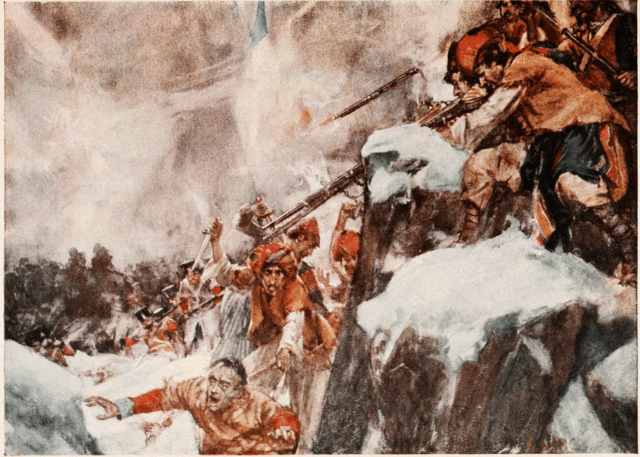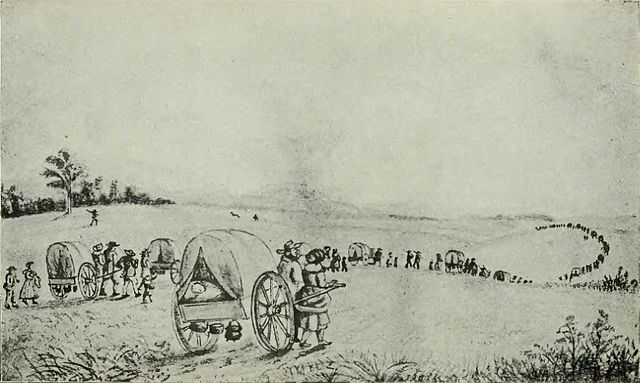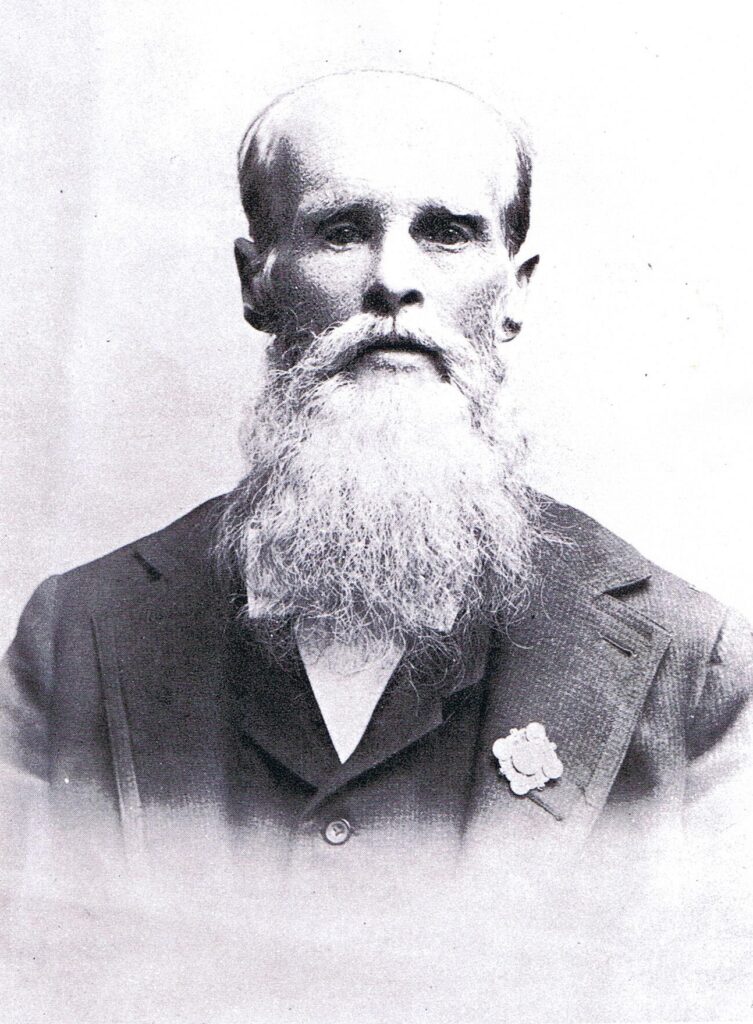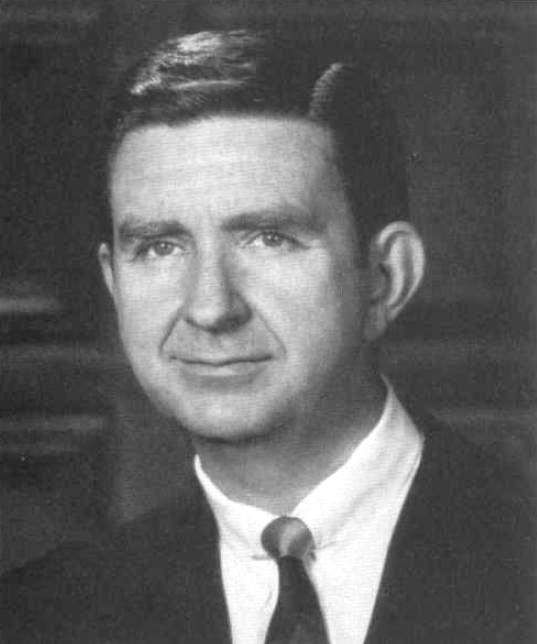We generally feel more comfortable around those who share our beliefs and outlook on life, who think the way we do. The naysayers, gadflies and critics in our ranks can be such a bother. They challenge our perspective and compel us to rethink our opinions. Even when they do it politely and diplomatically, they can be such a nuisance.
Most societies and organizations dislike dissenters but none more so than religious organizations. Because they are typically hierarchal and authoritative, and their leaders believe their authority originates with God, their actions and decisions should not be open to question. But the heads of organizations of all stripes, when confronted by recalcitrant subordinates, often throw up their hands and exclaim: “Why is it so hard for you to do what we ask, to simply conform?”
No one has ever given voice to this sentiment with greater candor than the British Foreign Secretary Lord Palmerston. In the 1840s, he became so exasperated with the Indian civil service officials who were constantly criticizing his South Asian policies that he said he would rather have second-rate obedient people than first-rate independent minds.[1] But if Mr. Palmerston had carefully considered the views and warnings of those “independent minds” when they urged him in 1839 not to proceed with an unprovoked invasion of Afghanistan, then perhaps 5,000 of Her Majesty’s soldiers and civilians would not have lost their lives three years later when the local population predictably revolted against the British occupation.

Sadly, there are instances in our church’s history where ecclesiastical officials have embraced Mr. Palmerston’s approach. And, at times, the costs have been steep.

Shortly after the Willie handcart company began its trek from Iowa City to Salt Lake in the summer of 1856, it arrived in Florence, Nebraska, where the leaders and members of the company gathered to consider whether they should make winter quarters or press on. Virtually all of the church officials, company captains and sub-captains spoke in favor of continuing the journey, assuring their listeners that their collective faith would see them through.

A sub-captain by the name of Levi Savage, however, took an opposing view, saying that, by departing so late in the season the Saints would be compelled to wade through snow “up to our knees” and endure sub-freezing temperatures for which they were ill prepared. People were going to die, he said.[2]
Brother Savage knew whereof he spoke because, unlike all but three other members of the company, he had actually crossed the plains before. Nevertheless, his dissenting vote was greeted with scorn and derision by company leaders and church officials. He was called “a recreant to the cause of truth and a disturber of the peace of the brethren and an opposer of those who were placed over him and called upon to repent.”[3] Captain James Willie, according to Savage’s diary, said that “the God he served was a God that was able to save to the uttermost, … and he wanted no Job’s comforters with him.” William Kimball then chimed in, sternly rebuking “those of little faith, and he promised that he would ‘stuff into his mouth all the snow they would ever get to see on their journey to the valleys!”[4]
While Savage reluctantly agreed to continue, some church members elected to pull out, making winter quarters either in Nebraska or back in Iowa City. They realized that the failure of the company to depart in springtime, as originally planned, would mean they would likely confront unforgiving, and potentially lethal, winter weather once they reached the mountains; so they chose to wait until winter passed before continuing on to Zion. By and large, these “back outs,” as they were pejoratively labeled, were mothers and fathers who were concerned for the safety of their children and the older members of their families. Such motives, however, were deemed impure by many church and company officials who vilified the dropouts, impugned their faith, and called them the “chaff” that the Lord was sifting from the wheat.[5]
I have often wondered if, a couple of months later when Brother Savage’s predictions came true and members of the Willie and Martin handcart companies began to succumb to the elements, what ran through the minds of those company and church leaders who had castigated the “back outs” and Brother Savage. When they found themselves trying to dig a shallow grave in the frozen earth for an infant child that had frozen to death during the night, did the thought ever cross their minds that maybe the dissenters were right? Over 200 members of these two handcart companies died that winter, a mortality rate of approximately 20%.
I do greatly admire those individuals and families who, once the elements turned against them and they realized they had been misled as to the risks, exhibited great courage in the face of impossible circumstances. But those Saints who elected to wait until spring to complete the trek, who determined that the journey would endanger their lives and those of their families, who were threatened with the loss of their membership if they did not conform, they, too, I hold in high esteem.
In more recent times, there is the story of Lester Bush, an army physician and member of the church, who incurred the wrath of its leaders by doing something seemingly innocuous: writing a lengthy, scholarly article for a publication few church members had heard of. But this article challenged the church’s narrative regarding the origins of the infamous Priesthood Ban, a doctrine (later called a policy) that barred those of African origin from receiving the priesthood and denied them access to temple blessings.[6]
Prior to the publication of his work, the conventional wisdom was that the Priesthood Ban had its origins in a revelation Joseph Smith had received and that it existed in ancient times as well. Bush’s research, however, found no contemporary records or journals linking Joseph Smith to this restriction; rather, most documentary evidence pointed to his successor, Brigham Young, as the source of the doctrine. Further, no church leader at the time ever made reference to a revelation to justify the Ban.
Bush’s thesis had a profound impact on how the Priesthood Ban should be viewed and, more significantly, it raised serious questions regarding the validity of the Ban. Not surprisingly, some in Salt Lake were not pleased.
Boyd K. Packer tried to persuade Bush not to publish the article while others, at Packer’s behest, lobbied the editors of Dialogue. Thankfully, they all failed. But the story does not end there.[7]
Bush, following the article’s publication, was marginalized by local church leaders. According to one LDS scholar, this shunning, though subtle, apparently came from a higher authority.[8] The extent of his ostracization and discomfort reached the point that he and his family simply withdrew from all church activity.

This is tragically ironic since there is evidence that Bush’s article had a profound impact on the church leadership. Years later, Bush was told by Marion D. Hanks, a member of the Presidency of the Seventy, that his “article had had far more influence than the Brethren would acknowledge. It ‘started to foment the pot,’” thereby contributing to the lifting of the Priesthood Ban five years later.[9]
Merely tolerating the dissenters, eccentrics and nonconformists in our midst is not enough. Indeed, tolerance in this context has an unspoken air of condescension: “Yes, we will allow you to speak your mind without fear of retribution, but don’t expect us, your superiors, to take seriously what you have to say.” As Thomas Paine once observed: “Toleration is not the opposite of Intolerance, but is the counterfeit of it. Both are despotisms. The one assures to itself the right of withholding Liberty of Conscience, and the other of granting it.”[10]
Our church needs people like Levi Savage and Lester Bush—members who are willing to “foment the pot,” to look their leaders in the eye and respectfully say, “I think you are about to make, or have made, a serious mistake.” And while critics are sometimes wrong, they should not be punished or ostracized for having the temerity to question, provided they do so in a way that acknowledges and respects the ultimate authority of the decision maker. President Hugh B. Brown said we should be unafraid to dissent, as long as we are informed, but at times those words ring hollow when experience teaches us there is often reason to fear.
The 19th Century British political philosopher John Stuart Mill, in his seminal essay, “On Liberty,” wrote: “[T]he amount of eccentricity in a society has generally been proportional to the amount of genius, mental vigor, and moral courage which it contained. That so few now dare to be eccentric, marks the chief danger of our time.”[11]
Given the hostile reception mavericks often receive in the LDS community, it is not surprising that so few members dare to be eccentric. This can be a serious obstacle to the acquisition of truth. It is also at odds with the origins of our church. Arguably the most eccentric and iconoclastic individual to walk the earth in the last 200 hundred years was a visionary who made it his life’s work to challenge established conventions and who was never afraid to reexamine and modify, if necessary, his own ideas and teachings: Joseph Smith, Jr.
[1] Rory Stewart, “Lessons from Afghanistan,” The New York Review of Books, August 16, 2012, 82.
[2] David Roberts, Devil’s Gate, (New York: Simon & Schuster, 2008) 147-149.
[3] Roberts, Devil’s Gate, 149.
[4] Marshall Hamilton, review of The Price We Paid: The Extraordinary Story of the Willie and Martin Handcart Pioneers, by Andrew D. Olsen, The Journal of Mormon History Vo. 33, No. 3 (2007): 211.
[5] Roberts, Devil’s Gate, 98-100.
[6] Lester E. Bush Jr., “Mormonism’s Negro Doctrine: An Historical Overview” 8, No. 1, Dialogue: Journal of Mormon Thought 11-73 (Spring 1973).
[7] Gregory A. Prince. “The Long Awaited Day,” June 8, 2010. By Common Consent.
[8] Ibid.
[9] Lester E. Bush, Jr., “Writing ‘Mormonism’s Negro Doctrine: An Historical Overview,’[1973]: Context and Reflections, 1998.” Journal of Mormon History Vol. 25, No. 1 (1999): 264-265.
[10] Paine, Thomas, Rights of Man: Being an Answer to Mr. Burke’s Attack on the French Revolution (Library of America 1995) 482.
[11] Mill, John Stuart The Basic Writings of John Stuart Mill, “On Liberty” (New York: The Modern Library, 2002) 69.

Another good one, Eric. I’d disagree, however, that “tolerance” is a counterfeit version of intolerance. I think it’s a range of acceptance of which the term is most often applied at the lower boundary such as in an electoral choice where all parties have good and bad points but a prospective voter chooses to “hold his/her nose” to exercise their franchise. In grad school, I had a “dissenter” as a political science professor (now, of course, his viewpoint defines the academic monoculture). He taught Herbert Marcuse’s doctrine that tolerance was abominable to those who “knew” the truth (see “woke” in current parlance) and to tolerate those with unenlightened views was morally reprehensible. I prefer to see tolerance as the minimum acceptable choice and we should, as you argue, embrace a vigorous exchange of views and rejoice in the expanding breathe of our understanding. Let me tell you about my Lee Mill Farm experience sometime.
On a related note, our Northern Virginia Church community will be losing one of our great examplars of your ideal. Mary Bradford is relocating to Utah shortly.
As always, an interesting read, thank you !
Fascinating piece. I agree with Dick about tolerance. Free agency is hard to live with but it is the very core of our life on earth. It is given to each of us to make our own decisions relying on prayer and inspiration from the Holy Ghost. Joseph Smith, himself, was always ready to say that everything he did and said was not from the Lord. He was a prophet and when he spoke as such his words were inspired of God. He was also a man. The only heavenly being to have ever lived on this earth is Christ. Sometimes people in authority get so caught up in their own views that they refuse to even imagine that they could be off track. I guess in the end, I am glad I’m not a leader of others since I can only send myself astray. Actually, in the case of my children I wish I could have been a more effective leader of others. What a difficult task to lead by inspiration and revelation and then try to determine if you are really being inspired or are just caught up in your own opinion. A lot to think about but in the end free agency remains our personal challenge.
“And while critics are sometimes wrong, they should not be punished or ostracized for having the temerity to question, provided they do so in a way that acknowledges and respects the ultimate authority of the decision maker.” This is the crux of the problem and why it can never be resolved. Eventually, whether it be a church or a school or Rotary or whatever, those in authority are going to revert to a form of something we all said to our young kids when they kept pestering us about something: “Because I say so!” And Authority will expect obedience because they are, well, the authority. The critic, on the other hand, will not and indeed cannot accept a declaration based only on an appeal to authority, even if that authority is God. The critic, God bless him–pun intended, has to have more: logic, rational thought, principled argument, private confirmation (if it can be found) from whatever source (God, nature, the universe) he believes in. Authority is not satisfied with this response and neither is the critic. It’s within this tension that the value is derived. You do a very nice job pointing this out.
Dick, I’m compelled to agree with you, at least to some extent, if for no other reason than the first essay I published on my website was called “Tolerance” in which I stressed the importance of exhibiting tolerance for those who think differently than we do.
But tolerance, it seems to me, can be the counterfeit of intolerance, when those in authority say: “Okay, you can say your piece, but when you’re done we’re going to go ahead and do what we want.” My first instinct is to dismiss such tolerance as worthless, a sham. And while on a certain level it is, your point about the academic monoculture (excellent descriptor, by the way) that prevails on so many university campuses today—places where certain opinions cannot be voiced at all—suggests that being able to at least express your opinion in a hostile and unreceptive environment is better than being silenced altogether. At least you have a beachhead from which, some day, you can make further advances, convincing others to engage with your opinions.
By the way, I am familiar with Marcuse’s ideas, most of which I do not find compelling. And the idea that anybody can say, with total certainty, that they know THE truth and then use that “knowledge” to shut off all further debate is preposterous. One of the reasons I chose an image of Socrates for the landing page of my website is because he claimed to know only one thing for certain: that, in reality, he knows nothing at all.
Thanks, also, for the info about Mary. This afternoon I sent her an email wishing her well and telling her again how big an influence she has been in my life.
Karen Hammond, I’m glad you enjoyed it. If nothing else, it makes you a member of a small, but much-appreciated, minority. 🙂
Karen Hanneman, you’re right: free agency is at the core of our existence. Without it, everything else is meaningless, including the atonement. Do I pledge unwavering fealty to a leader, or am I prepared to part company when I believe he or she is headed in the wrong direction? And prophets sometimes make mistakes even when they believe they are acting in a prophetic capacity, so that’s not always a sure thing.
The one thing that actually inspires my confidence in a leader, be they ecclesiastical or otherwise, is one who takes ownership of his or her mistakes, who is willing to say: “Listen, we really messed up this time. But we’ve tried to determine what we got wrong and are committed to doing better in the future.” Such a man (or woman) I will follow to hell and back. But one who assures me he is incapable of leading me astray, or that some higher authority will prevent him from doing so, well, when he leaves my home, I’ll count my silverware.
And, as to parenting, we all wish we could have a few “do overs.” Okay. Several.
Thorpe, I like the way you frame the problem as one of perpetual disagreement between leaders and their critics. But what really struck me was your concluding observation: “It’s within this tension that the value is derived.” I would modify that only slightly by saying that you HOPE value can be derived, at least some of the time. But for that to happen, both sides have to genuinely listen to and respect the other, and that can only occur if the person in the authority is willing to treat his critics, at least intellectually, as his equals. Sadly, that doesn’t happen often, which leads me to my next point.
I have often thought that of all the human failings—and heaven knows they are almost infinite in number (come to think of it, heaven probably does know that)—the one that stands in the way of peace and our progression as human beings more than any other is pride. That single, monosyllabic word perfectly describes, in my opinion, the reason for the cyclic rise and fall of our societies. It is the one obstacle that prevents people from stepping back from the brink. Now, if they’d just put me in charge, I could put a stop to it and set things right!
As we’ve read the BoM this year, I’ve noticed how “Dissenters” are treated and talked about. There are several times when dissenters are even put to death without really elaborating on what they were requesting or differing on. I recently watch the new Les Miserable series on Amazon Prime and was struck by how this same story plays out with different characters across time and organizations. A group of people who are suffering in some way fight against the status quo while the group that benefits from the present system fights to protect it until things escalate to violence. Like you mentioned in your article, it’s not really about which group is right or wrong, but how they treat each other when they differ. So much pain and suffering could be avoided if differing groups sincerely listened and counseled together without become defensive and vilifying one another. It’s really quite depressing when you think about it too much.
S Barnahart, excellent observation. Thank you.
I have noticed the same thing in my studies of the Book of Mormon. The version of dissent found throughout the text makes virtually no room for sincere religious disbelief. In the case of the anti-Christs, they are all portrayed as individuals who had a sure knowledge of what was true and then consciously turned their back on it.
But the Book of Mormon undermines this argument in several places, and no more conspicuously than when describing the confession and execution of Nehor. Alma 1:15 states that “they carried him upon the top of the hill Manti, AND THERE HE WAS CAUSED, or rather did acknowledge, between the heavens and the earth, that what he had taught to the people was contrary to the word God; . . .”
The author commits a Freudian slip: he inadvertently admits that coercion was employed to extract the confession, and then corrects himself. As Michael Austin has noted, he cannot just press the delete key to retract his words “because it’s hard to erase engraved hieroglyphics.”
There are two important things we must remember when we study history, even in the scriptures: (1) the winners, not the losers, are the ones who write it, and (2) for most of mankind’s existence, political and religious power have been held by the same individual (monarchy) or organization (government/church); only since the Enlightenment has this changed.
Understanding the Book of Mormon’s zero tolerance for religious dissent makes it somewhat easier to understand why similar attitudes often find expression in our church.
Eric good response. It is important to be able to recognize mistakes and backtrack. Knowing for sure is just an exercise of faith and drawing near to Christ is “looking through the glass darkly” if you will. I am trying to remember your piece on that scripture which I found enlightening and now don’t remember.
I do always try to remember what I consider to be eternal truths, LOVE, PROGRESSION, LEARNING, KINDNESS, FAMILY, LOYALTY, FORGIVENESS, REPENTANCE, SHARING AND CARING.
Ahh the joys of aging.
I left out one important opportunity we all have when dealing with eternal truths. That is to make covenants with the Lord starting with baptism. This allows us to be part of an agreement with Christ (perfect deity) and opens the door for personal direction and understanding of our own lives dealing with and trying to better understand a loving father who is perfect.